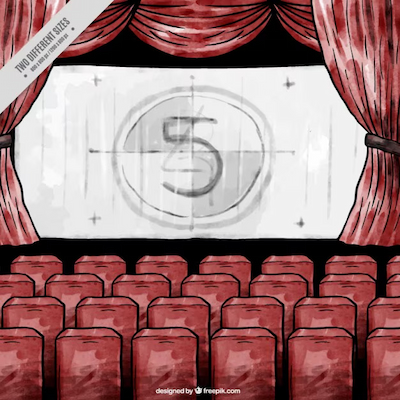
Film soundtracks are a vital element of cinematic storytelling, shaping how we feel, interpret, and connect with the stories on screen. From the swelling strings of a dramatic moment to the eerie hums in a suspenseful scene, music adds emotional depth and narrative structure in ways that visuals alone cannot achieve. It guides the viewer’s emotions, signals thematic shifts, and creates memorable experiences that linger long after the film ends.
Throughout cinema history, music has evolved from simple background accompaniment to a powerful storytelling tool used by directors and composers to build atmosphere, reinforce character arcs, and shape entire genres. Whether through iconic orchestral scores or subtle ambient textures, film soundtracks have the ability to transcend language and culture, drawing audiences deeper into the world of the story.
How film soundtracks work: building emotions through music
Music is one of the most powerful tools used in cinema to evoke emotion, set the tone, and guide the audience through the narrative. Since the earliest days of silent films, soundtracks have helped transform moving images into emotionally resonant experiences. The careful blend of melodies, harmonies, and rhythms can communicate what words and visuals alone cannot, turning abstract emotions into something tangible and deeply felt.
Film soundtracks are not just background elements—they are thoughtfully composed to align with a movie’s themes, character arcs, and emotional beats. Composers and directors collaborate to ensure that each note supports the visual storytelling. This creative synergy elevates a film, making its emotional journey more immersive and unforgettable. Many films are remembered not only for their stories but also for their iconic soundtracks that live on in our collective memory.

Benefits of using soundtracks in cinema: impact on storytelling
Soundtracks offer several advantages that directly enhance cinematic storytelling. One of the key benefits is the ability to amplify the emotional experience of the viewer. When a powerful score accompanies a dramatic scene, the emotional intensity is magnified, helping the audience connect more deeply with the characters and their struggles. Music can make the audience laugh, cry, or feel fear, depending on how it is used in context.
Another important benefit is the ability of soundtracks to establish a film’s identity. Recurring musical themes can become symbolic of certain characters or situations, creating an immediate connection in the viewer’s mind. For example, the famous Star Wars soundtrack is not only a cultural icon but also reinforces the presence of characters like Darth Vader and Luke Skywalker, evoking strong emotional responses each time their motifs are heard.
Soundtracks also help define a film’s pace and rhythm. Music can speed up or slow down a sequence, guiding the viewer through scenes that might be tense or reflective. A skilled composer can use music to build suspense during an action scene or provide a moment of calm and reflection, allowing the audience to process what’s happening on screen. This manipulation of narrative timing through music is a powerful storytelling tool.
Finally, soundtracks can transcend time and place, connecting different cultures and generations. Songs composed decades ago can still resonate with modern audiences, creating feelings of nostalgia and continuity. This not only enriches the cinematic experience but also cements music as a timeless element in the art of storytelling.
The psychological effects of music in film
Music in film has a profound psychological impact on viewers. It can influence mood, perception, and even physical responses such as heart rate and goosebumps. This emotional manipulation is what makes music a powerful tool in cinematic storytelling.
Certain chords and tempos can evoke specific emotional reactions. For instance, a minor key often suggests sadness or tension, while a major key can convey joy or resolution. These musical cues help the audience interpret scenes beyond the visual information provided.
Psychologists have studied how music shapes memory and emotional recall. A memorable film scene becomes even more iconic when associated with a specific piece of music. This connection helps anchor emotional experiences and creates lasting impressions.
The brain processes music and visuals simultaneously, but in different regions. When combined effectively, these stimuli reinforce each other, enhancing comprehension and emotional impact. This is why some scenes would feel incomplete or less powerful without their musical counterpart.
The role of silence and sound design in contrast to music
While music is essential, silence and sound design also play vital roles in storytelling. Strategic use of silence can heighten suspense, draw attention to visual details, or create a moment of emotional intimacy between the audience and the characters.
Sound design refers to all non-musical audio elements, such as ambient sounds, footsteps, breathing, and environmental noises. When combined with or contrasted against music, these elements can create immersive and dynamic experiences that engage the senses on multiple levels.
Filmmakers often use silence to build anticipation before an important moment. In horror or thriller genres, the sudden absence of music can be more unsettling than any melody. It gives space for tension to grow and allows sound effects to take center stage.
In some films, the line between music and sound design is intentionally blurred. Directors and composers may use experimental techniques, like turning ambient noises into rhythmic patterns or blending instruments with natural sounds. This creates unique soundscapes that redefine how music functions in a narrative.
How film soundtracks influence the viewer’s experience
Film soundtracks influence viewers in several impactful ways. Music creates unique atmospheres in films. Each genre typically has a musical style that sets expectations for the audience. Horror films often use dissonant sounds and dark melodies to create unease, while comedies tend to use light and cheerful tunes to evoke laughter. This atmosphere-building is key to preparing the viewer for what lies ahead.
Soundtracks help tell stories more effectively. Music often acts as an invisible narrator, guiding viewers through the plot and highlighting key moments. When a character faces a dilemma, the score can intensify the scene, preparing the audience for an emotional climax. Music can also smooth transitions between scenes, maintaining narrative flow and cohesion.
Music evokes deep emotions in audiences. Research shows that music can trigger intense emotional responses, often more powerfully than visuals alone. This ability to stir emotion is a valuable tool that filmmakers use to create lasting emotional bonds. When a scene is paired with a powerful score, it becomes more impactful and memorable.
Musical composition can intensify dramatic moments. A fast-paced score can heighten the excitement of an action scene, while a soft, melancholic melody can emphasize a moment of revelation. This strategic use of music during critical scenes allows filmmakers to maximize emotional impact.
Musical analysis in films reveals hidden layers of meaning. By examining a movie’s soundtrack, viewers can uncover underlying themes and nuances not immediately visible. Music can offer clues about a character’s mindset or suggest connections between different elements of the story. This added depth enriches the viewing experience and invites deeper reflection.

Did you enjoy learning about film soundtracks?
Film soundtracks are an essential part of the cinematic experience, shaping how we perceive and feel each story. Music not only complements the visuals but also enhances them, forging an emotional connection that stays with the audience. Through carefully crafted compositions, filmmakers can turn a simple narrative into a powerful and unforgettable journey.
If you’re fascinated by how soundtracks influence storytelling and viewer engagement, keep exploring this captivating topic. Music in film is a vast and nuanced subject, full of insights and emotional layers that deserve to be appreciated.
Frequently asked questions
What are film soundtracks?
Film soundtracks are the music that accompanies movies. They help tell the story and create emotions.
How does music affect the emotions of characters?
Music can make you feel sad, happy, or excited. It helps you feel what the characters are feeling.
What role do soundtracks play in storytelling?
Soundtracks highlight important moments and help guide attention and understanding of the story.
Who composes film soundtracks?
Many composers create film scores. Some, like John Williams and Hans Zimmer, are very famous.
Can soundtracks change the perception of a film?
Yes, soundtracks can change everything! Music can make a scene feel more exciting or even scarier.

